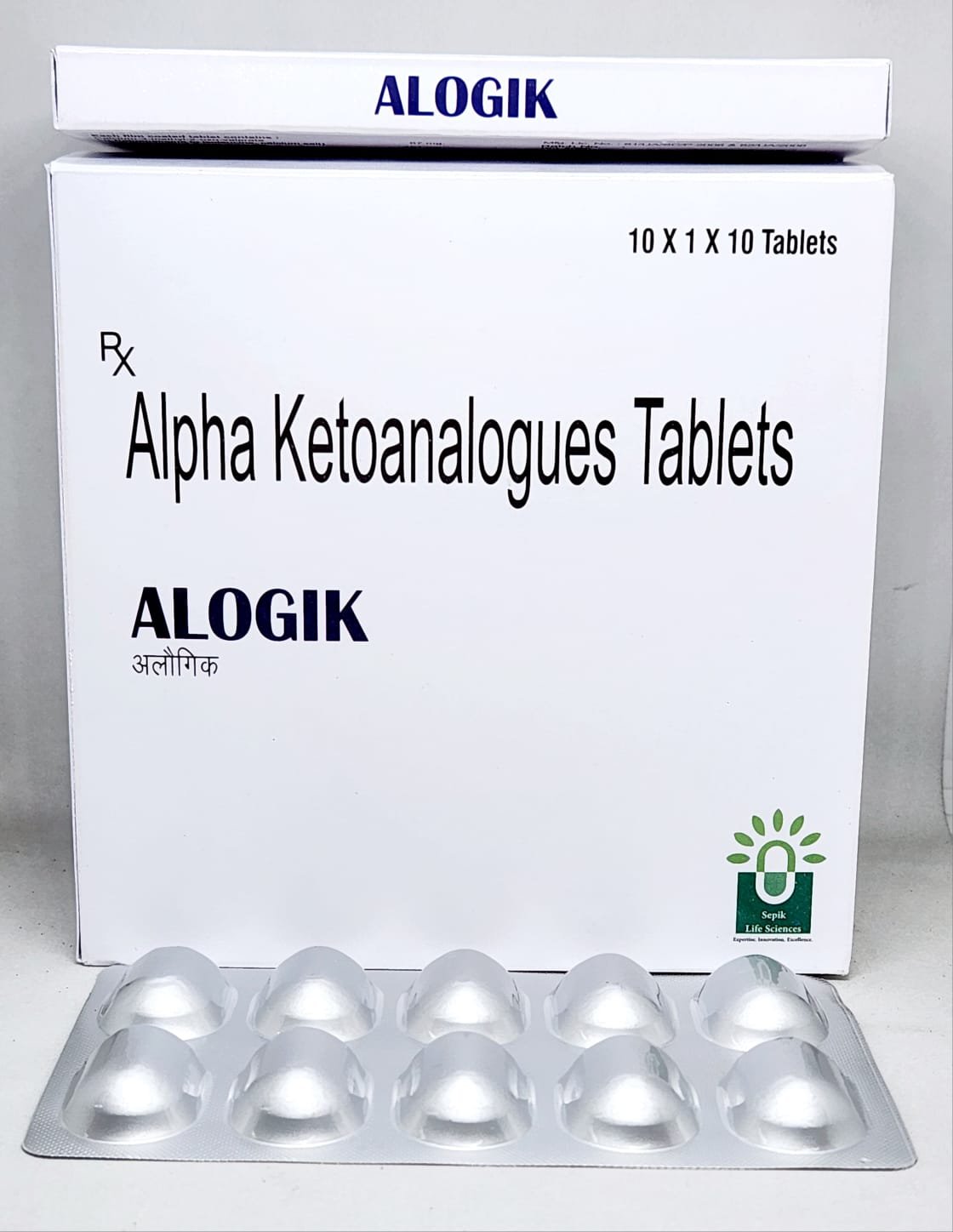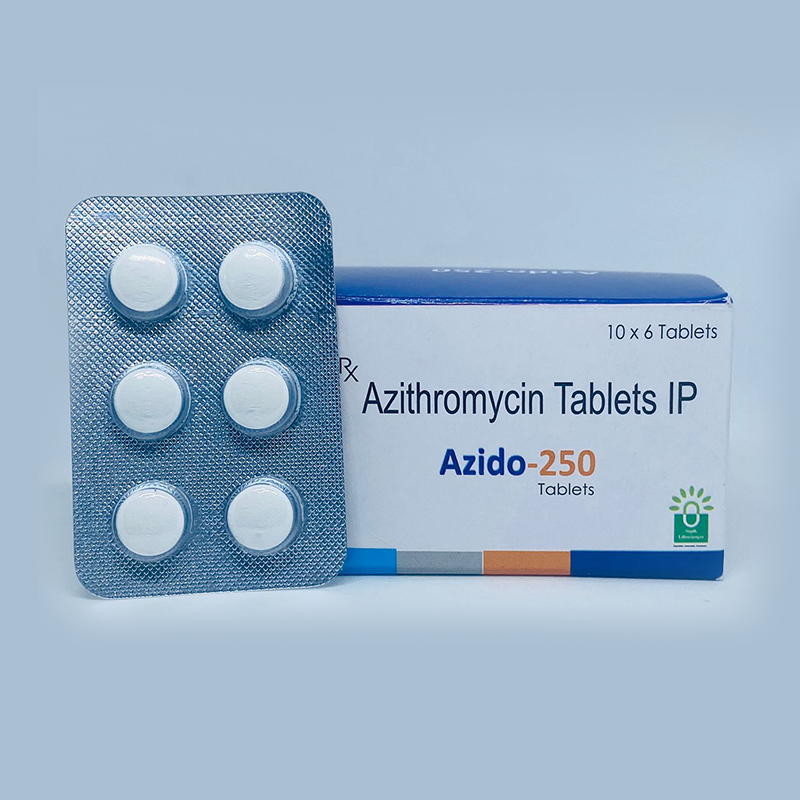
CLERIK 125 DRY SYRUP
June 9, 2023
DROGIK 10: Dydrogesterone Tablets IP 10mg
June 9, 2023ALOGIK: Alpha Ketoanalogue Tablets
₹3,490.00
ALOGIK
Composition: ALPHA KETOANALOGUE TABLETS
Packing: 10X1X10 (ALU ALU)
Expert Advice on Alpha Ketoanalogue Tablets: Uses, Benefits, and Precautions
Alpha Ketoanalogue tablets are essential supplements primarily used in managing chronic kidney disease (CKD). They help delay the progression of kidney failure and support nutritional needs in patients on a low-protein diet. Here’s a detailed expert guide for optimal use:
1. Key Uses of Alpha Ketoanalogue Tablets
- Chronic Kidney Disease (CKD):
Helps reduce uremic toxins and delays the need for dialysis by lowering blood urea levels. - Protein Metabolism:
Supports patients on a low-protein diet by providing essential amino acids without increasing nitrogen load. - Malnutrition Prevention:
Prevents protein-energy wasting and muscle loss in CKD patients.
2. How Alpha Ketoanalogues Work
- Nitrogen-Free Precursors:
These compounds convert into essential amino acids in the body without producing nitrogen, reducing the load on damaged kidneys. - Reduces Uremic Toxins:
Helps decrease urea and creatinine levels, slowing kidney disease progression.
3. Dosage and Administration
- Typical Dosage:
Usually 1 tablet per 5 kg of body weight per day, divided across meals. For example, a 70 kg person may take around 14 tablets daily. - Administration:
Take the tablets during meals to enhance absorption and ensure proper metabolism.
Expert Tip:
Adherence to a low-protein diet (0.6-0.8g/kg/day) is crucial for the effectiveness of alpha ketoanalogues.
4. Common Side Effects
These tablets are generally well-tolerated, but some individuals may experience:
- Nausea or vomiting
- Hypercalcemia (elevated calcium levels)
- Flatulence or abdominal discomfort
Pro Tip:
Regularly monitor calcium levels and consult your doctor if you experience persistent side effects. Products Categories
5. Precautions and Interactions
- Medical History:
Inform your doctor if you have a history of hypercalcemia, liver disease, or cardiovascular conditions. - Pregnancy and Breastfeeding:
Use only if prescribed, as safety data is limited. - Drug Interactions:
Avoid combining with calcium supplements or vitamin D unless advised, as it may increase calcium levels.
6. Special Considerations for CKD Patients
- Dietary Restrictions:
Follow a low-protein, high-calorie diet to maximize benefits. - Monitoring:
Regularly check blood urea nitrogen (BUN), creatinine, and electrolyte levels to assess kidney function and treatment efficacy. - Hydration:
Maintain adequate fluid intake to support kidney function unless restricted by your doctor.
7. Lifestyle Tips for Better Results
- Balanced Diet:
Emphasize low-protein foods like fruits, vegetables, and specific grains. - Avoid High-Phosphorus Foods:
Limit dairy products, nuts, and processed foods to reduce kidney strain. - Exercise:
Engage in light to moderate exercise to maintain muscle mass and overall health.
8. When to Consult a Doctor
- Persistent nausea, vomiting, or abdominal discomfort.
- Signs of hypercalcemia: muscle weakness, confusion, or irregular heartbeat.
- Worsening kidney function symptoms: swelling, fatigue, or shortness of breath.
Final Thoughts
Alpha Ketoanalogue tablets play a crucial role in managing CKD by reducing the uremic load and supporting nutrition. For optimal results, follow a strict low-protein diet and attend regular check-ups to monitor kidney function and overall health.
Empower your kidney health journey with informed, expert-guided use of alpha ketoanalogues!
Related products
-
METSEP-M1 (SR)
₹890.00 -
AZIDO-250
₹780.00 -
AZIDO 500LB
₹1,660.00




